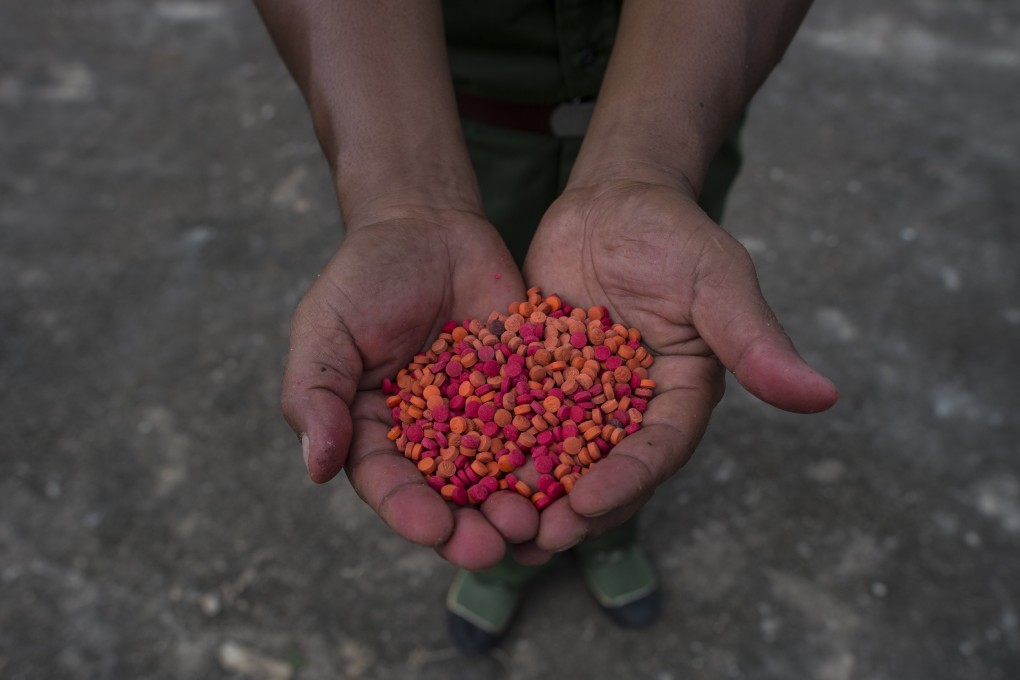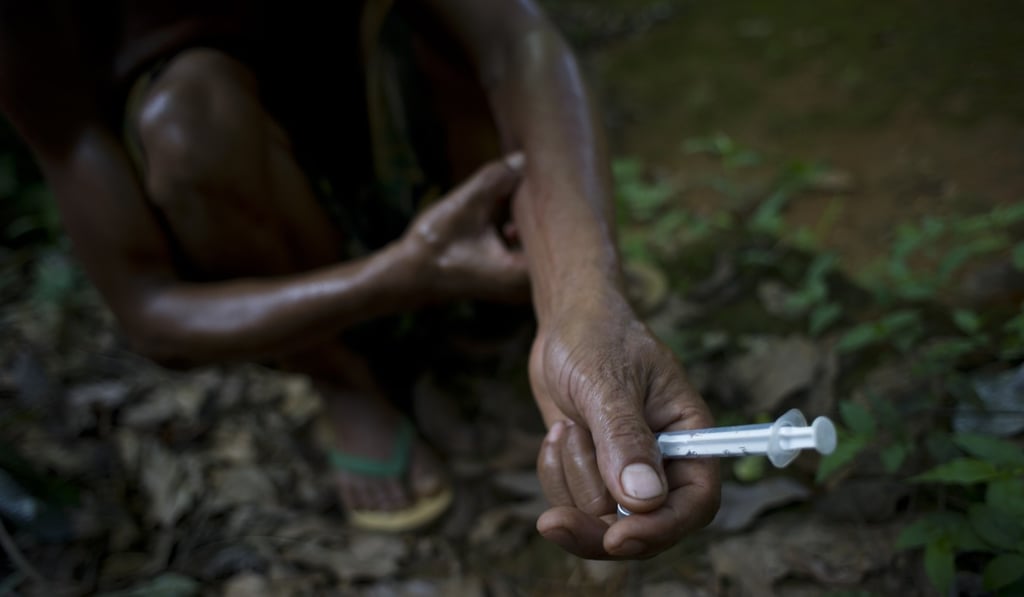What does China’s Belt and Road have to do with Myanmar’s meth problem?
- China is key to arresting a surge in methamphetamine production that has seen Myanmar become one of world’s largest suppliers, claims new report
- Chemicals used in making the drug are pouring over border, while separatist groups are exploiting China’s infrastructure plans for the region, it says

If Myanmar is to break an addiction to methamphetamine production that has seen it become one of the world’s largest suppliers there is one country above all others that must act: China.
That’s according to a report released on Tuesday that highlighted how complexities in the relationship between the two countries are being exploited by armed separatists who are producing thousands of tonnes of the drug in the “Golden Triangle” of Myanmar’s Shan state, an area that is already the world’s second-largest heroin-producing region.
Chemicals used in the production of the drug have been flowing over the state’s border with China, according to the NGO International Crisis Group (ICG), which says China should take a tougher line against the drug-producing armed separatist groups seen as being under its influence.
China has a complex relationship with the groups, many of which arose out of the splintering of the Communist Party of Burma and claim an ideological and cultural kinship with the People’s Republic of China. As Patrick Winn, an expert on organised crime in Southeast Asia, says: “You can see the fallout from the Chinese civil war written into the landscape of the drug trade today.”

Beijing’s infrastructure ambitions in the region as part of its Belt and Road Initiative require it to tread lightly with the rebels – or risk the groups destabilising its projects. And while the ICG’s report holds out hope that the China-Myanmar Economic Corridor might help to reduce illicit drug production by creating more jobs, not all experts are convinced. Indeed, some point out that enhanced transport infrastructure has helped the groups transport the drugs.